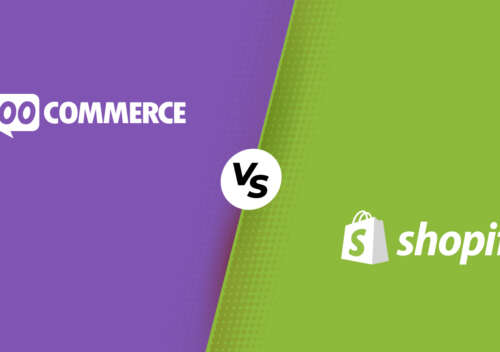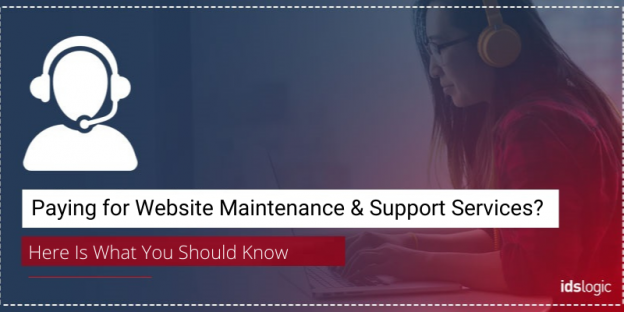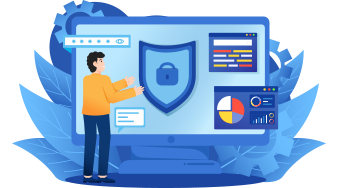Here are the proven ways that ensure WordPress security to your website. Ensuring the security s essential to keep the valuable data safe and secured.
WordPress Security: Proven Ways to Secure Your Website
WordPress stands out as a leading open-source content management system (CMS). Being renowned for its versatility in building ecommerce platforms, WordPress powers blogs, portfolios, and various other website features. However, its widespread popularity has also made it a prime target for hackers. Having an open-source code, the platform is prone to hacking attempts. But WordPress security can play the essential role in keeping your website secured. Added to that having reliable WordPress development services will also matter a lot in this regard.
To safeguard your WordPress website against potential threats, it’s crucial to implement robust security measures. In this comprehensive guide, we’ll walk you through essential steps to secure your WordPress site effectively. From fortifying login credentials to installing security plugins, the blog will cover major features. These features will also help to keep your themes and plugins updated. The write-up will cover everything you need to know to protect your website from hackers, bots, other types of cyber threats.
Why WordPress Security Matters?
WordPress security matters for a number of reasons. It is important not only to secure websites but also to ensure its proper functioning. And for the same, it is important to ensure regular WordPress Maintenance and Support services. Added to this, WordPress security is also important for the following reasons.
For Protecting website data
Websites house a wealth of sensitive information. This includes customer data, payment details, and critical business content. Securing this data is paramount to prevent potential breaches and safeguard our reputation. By prioritising robust security measures, we not only protect our customers’ trust but also ensure the integrity and confidentiality of our business operations.
Enhancing SEO
Search engines such as Google give preference to secure websites in their ranking algorithms. By implementing robust security measures and ensuring your site is protected with an SSL certificate, you not only safeguard user data but also enhance your site’s visibility in search results. A secure website can lead to better search engine rankings, ultimately driving more traffic and boosting your online presence.
For Prevention of Downtime
Security breaches, hacks, or malware infections can result in significant website downtime. This downtime disrupts your business operations, causing potential revenue loss and customer dissatisfaction. Moreover, such incidents can severely harm your online reputation and impact your bottom line. Ensuring your website’s security is vital to maintaining smooth business continuity and preserving your brand’s integrity.
Maintaining Customer Trust
A secure website instils confidence and trust among your visitors and customers. When users are assured that their personal and financial information is protected, they are more inclined to interact with your site and complete transactions. Building a secure online environment encourages customer loyalty and increases the likelihood of repeat business and positive word-of-mouth.
Now Let’s have a Look at the Best Practices to Improve WordPress Security
Updating WordPress Regularly
WordPress consistently rolls out software updates designed to enhance both performance and security. These updates play a crucial role in shielding your site from cyber threats. Keeping your WordPress version current is one of the most straightforward yet effective ways to bolster your site’s security.
Surprisingly, almost 50% of WordPress sites are operating on outdated versions, leaving them susceptible to attacks. To ensure your site is protected, regularly check for updates. Simply log in to your WordPress admin area, navigate to Dashboard → Updates on the left menu panel, and see if your version is up to date. If an update is available, we highly recommend applying it promptly to safeguard your site.
Ensure WordPress Admin Login Credentials are Secured
In case you are searching for how to secure a website, you must not do a mistake many users commit. A frequent mistake that users make is opting for easy-to-guess usernames like ‘admin’, ‘administrator’, or ‘test’. This practice significantly increases the risk of brute force attacks. Additionally, attackers often exploit weak passwords in these attacks, targeting WordPress sites with inadequate security.
To enhance your site’s security, we strongly advise using unique and complex usernames and passwords. Creating distinctive login credentials is a simple yet powerful way to protect your site from unauthorised access and potential cyber threats.
Using Reliable WordPress Themes
Unused plugins and themes pose a significant risk to your WordPress site, especially when they are outdated. These outdated components can become easy targets for cybercriminals. They can therefore easily exploit vulnerabilities in older software versions to infiltrate your site.
By leaving inactive plugins and themes on your site, you create potential entry points for hackers to gain unauthorised access, compromise your site’s security, and potentially cause extensive damage. Regularly reviewing and removing unused plugins and themes is essential for maintaining a secure WordPress environment.
Monitor User Activity
To ensure WordPress security and safeguard your WordPress website, it’s crucial to track activities within your admin area. This method is particularly beneficial for those with multiple users or authors accessing their site, as it helps identify unauthorised changes to settings, themes, or plugins.
Monitoring user activities allows you to pinpoint the source of any unwanted alterations and detect potential security breaches. By tracking actions within the admin area, you can establish accountability for changes and promptly address any issues that may arise. Implementing activity tracking is a proactive approach to website security, enabling you to stay ahead of potential threats and maintain the integrity of your WordPress site.
Check for Malware
To safeguard your WordPress website from unwanted or malicious actions, it’s crucial to track activities within your admin area. This method is particularly beneficial for those with multiple users or authors accessing their site, as it helps identify unauthorised changes to settings, themes, or plugins.
Monitoring user activities allows you to pinpoint the source of any unwanted alterations and detect potential security breaches. By tracking actions within the admin area, you can establish accountability for changes and promptly address any issues that may arise. Implementing activity tracking is a proactive approach to website security, enabling you to stay ahead of potential threats and maintain the integrity of your WordPress site.
Using SSL Certificate
Maintaining a website involves more than just creating content and designing layouts. It requires careful management of plugins and themes. Keeping unused plugins and themes on the site can be harmful, especially if they haven’t been updated. Outdated plugins and themes pose a significant security risk, as they can be exploited by cybercriminals to gain unauthorised access to your site.
In addition to updating your plugins and themes, it’s also important to regularly review and remove unused plugins. Regular WordPress Maintenance Services will ensure unused plugins and themes are not cluttering your site. By removing these unnecessary elements, you can streamline your site’s performance and reduce the likelihood of cyberattacks.
Disable PHP Error Reporting
PHP error reporting is a useful feature for monitoring your website’s PHP scripts, as it provides detailed information about errors and helps you troubleshoot issues. However, this feature can also pose a security risk by revealing sensitive information about your website’s paths and file structure.
One of the main concerns with PHP error reporting is that it can expose your website’s vulnerabilities to cybercriminals. For instance, if an error message displays a specific plugin that caused the issue, attackers could potentially exploit known vulnerabilities in that plugin to compromise your site.
To mitigate this risk, it’s important to disable PHP error reporting when it’s not needed. There are two main ways to do this: through a PHP file or your hosting account’s control panel. Disabling PHP error reporting can help protect your website from potential security threats and keep your site’s vulnerabilities hidden from malicious actors.
Migrate to Secured Web Hosting
Ensuring the security of your WordPress website goes beyond implementing multiple security measures; it also involves choosing a reliable hosting provider. Even the most robust security measures can be undermined if the hosting environment is vulnerable to cyberattacks.
Your hosting provider should offer a secure environment for your website data and files, with strong security protocols in place. When selecting a hosting provider, look for features such as firewalls, malware scanning, regular backups, and secure data centres.
If you have concerns about the security of your current hosting provider, it may be time to consider migrating your WordPress website to a new hosting platform. By choosing a hosting provider with a strong security track record, you can help protect your website from potential security threats and ensure its continued smooth operation.
In Conclusion
Ensuring the security of your WordPress website is essential to protect your data. WordPress security is also necessary for maintaining the trust of users. It is also necessary to prevent costly security breaches.
By implementing the proven strategies outlined in this guide, such as using strong passwords, keeping software up to date, and utilising security plugins, you can significantly enhance the security of your WordPress site. Additionally, staying informed about the latest security trends and best practices is key to staying one step ahead of potential threats. Remember, investing time and effort in securing your website today can save you from major headaches in the future.











